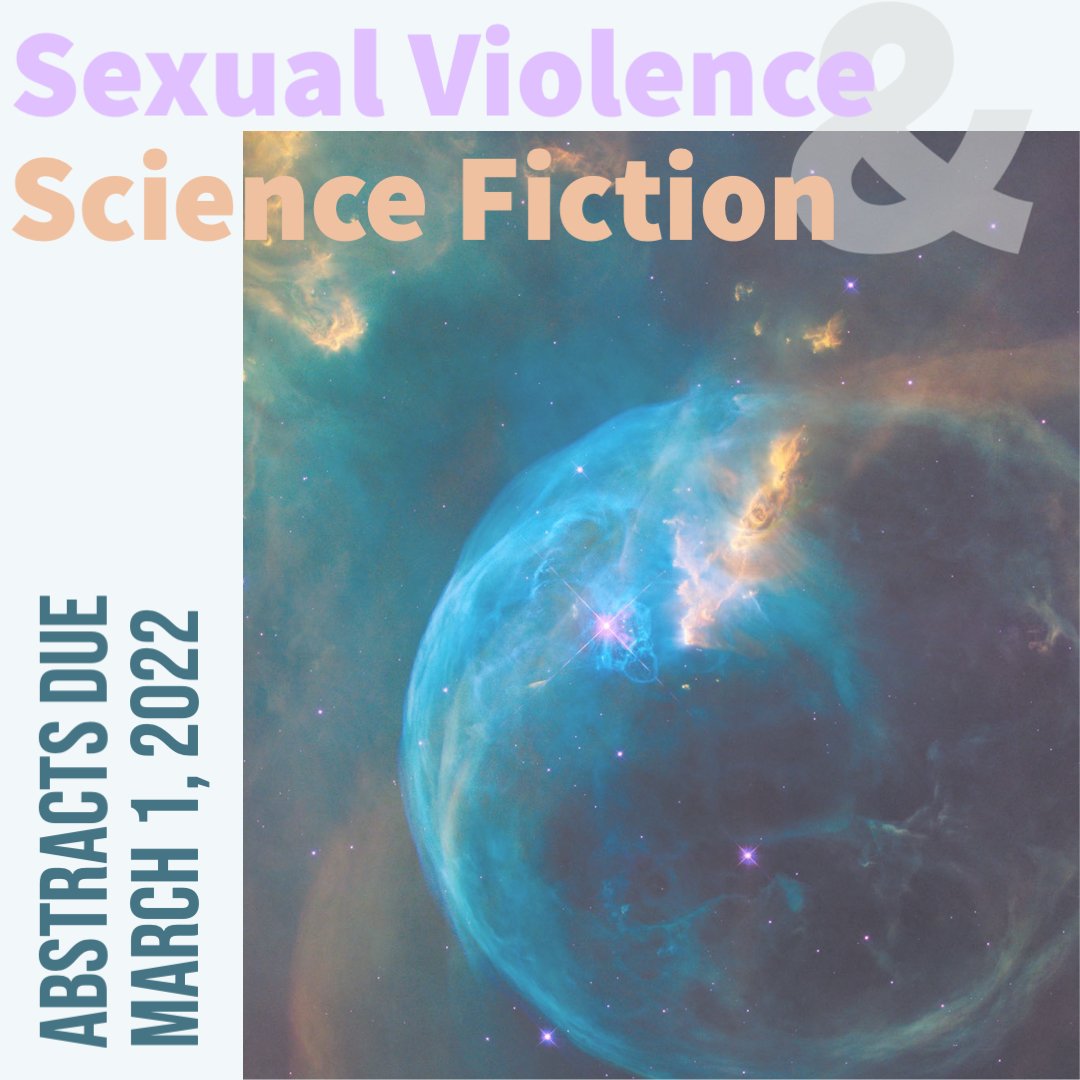CFP: Sexual Violence and Science Fiction
I had so much fun editing my 2021 symposium on Mormonism and science fiction that I decided to put together another CFP for 2022 for SFRA Review. This collection will be on sexual violence and science fiction.
Check out the CFP below and email me if you have questions or want to chat about an idea! Abstracts are due March 1, 2022.
CFP: Sexual Violence and Science Fiction
In Redefining Rape (2013), feminist historian Estelle Freedman argues that history shows a war of words over how different groups defined sexual violence: “The history of repeated struggles over the meaning of sexual violence reveals that the way we understand rape helps determine who is entitled to sexual and political sovereignty” (11). She sees rape as a political tool used to gain power and subjugate and marginalize groups of people based on race, gender, class, and other sociological valences. Thus, in Freedman’s hermeneutic, sexual violence becomes historically contingent and unshackled from a consistent and determined definition.
Through cognitive estrangement, science fiction authors envision futures and reflect on contemporary issues. Sexual violence—or, at the very least, the act of sex itself—has been written into the lifeblood of science fictional texts from Mary Shelley’s Frankenstein (1818) to Isaac Asimov’s Robots series (1950-1985) to K. M. Szpara’s Docile (2020). Freedman’s definitional unshackling allows scholars, authors, and thinkers of science fiction to examine and consider the sexual ethics, morals, legislations, and violence that are presented in science fiction media in a way that does not tie the creators to their own historical period nor unites them in a single definition of sexual violence. How, then, might the estranging and alternative nature of science fiction—its weirdness, its futurity, its otherworldliness—change or affect what audiences think about sexual violence? What transformations occur when an author or a creator considers the ethical, legal, or material characteristics of sexual activity in the future?
This symposium on sexual violence and science fiction seeks papers that discuss topics at the intersection of science fictional estrangement and sexual violence, an action that has real, material effects on the ways in which different sexualities, genders, races, bodies, and people interact with and are shaped by our contemporary world. Papers can, for example, position a single text (book, graphic novel, movie, tv series, etc.) of science fiction and look at its sexual activity, ethics, legislation, morals, justice, and/or violence to better understand how sex is promulgated, replicated, and/or subverted when authors use it in their work. Papers can also look at larger trends, movements throughout history, or comparatively between texts (even cross-media). Essays should not simply show how sex/sexual violence is represented in the text; they should mainly argue about what the estranged depiction means or what it does to and for the text and to and for the audience or receiver.
Submissions
SFRA Review seeks essays of c. 2,000–3,000 words for a special issue interrogating, analyzing, and critiquing the intersection of sexual violence and science fiction. Submissions can address, but are not limited to, the following:
Legal boundaries of sexual activity within a text’s imaginged empire
Expanded or condensed sexual morals and ethics
The effect/affect of sex within a universe
The presentation and representation of sexual activity as dominant and/or subversive
The use of sex as a means to power, accomplishment, or reward
Types of bodies and their use in sex—for example, robots or alien bodies, gendered bodies, classed bodies, etc.
Sex between (or not between) alien species and the meaning of race and gender
Sex as work or tool and the politics of citizenship in outer space
Mandated or limited sexual activity, including eugenics, population control, multiple partnering, forced partnering, etc.
The utilization of the erotic
The broadening of sexual allowance and the use (or misuse) of sexual activity
Abstracts of c. 250 words and short author bios should be submitted by email to the symposium editor Adam McLain at adam.j.mclain (at) gmail.com using the subject line “Sexual Violence and Science Fiction” by March 1, 2022.
Abstracts should specify the text the author wishes to write about and how they will approach sexual activity within the chosen text. Prospective authors are encouraged to reach out to Adam if they wish to discuss their essay concept; however, a discussion does not mean automatic acceptance. Authors will be notified of acceptance (or rejection) by March 15, 2022.
Accepted drafts of 2,000–3,000 words will be due in mid-May and should be prepared in MLA style with a Works Cited in MLA 8th edition. A full project timeline is listed below.
Timeline
March 1, 2022 = Abstracts due
March 15, 2022 = Authors Notified of Acceptance
May 1, 2022 = First Drafts Due
May 15, 2022 = First Draft Edits Returned
June 1, 2022 = Second Drafts Due
June 15, 2022 = Second Drafts Edits Returned
July 15, 2022 = Final Drafts Due
Early August = Publication of symposium in SFRA Review 52.3

